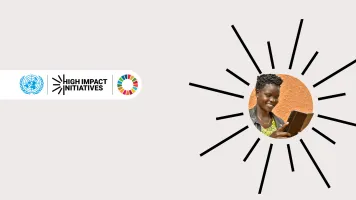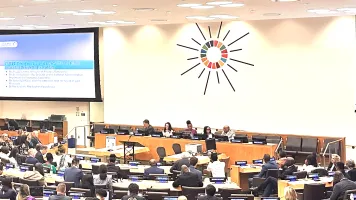In a large effort involving more than 50 stakeholders, the Global Partnership for Sustainable Development Data collaborated with Chief Statisticians from the United Nations System, ETH Zurich, and national partners to report on the state of global SDG data and map opportunities for progress.Here is what we found:
We need more data on urgent priorities
While we have seen a general improvement in the availability of SDG data in recent years, data for some of the most pressing Sustainable Development Goals – including Gender Equality (Goal 5), Climate Action (Goal 13), and Peace, Justice, and Strong Institutions (Goal 16) – remains limited. We need to further invest in data collection processes and national statistical systems to effectively measure progress. Such investments will yield dividends well beyond SDG reporting.
Developing countries are among the top performers
Of the 30 Member States with the highest data availability, 18 are developing countries. South America is especially well-represented. This goes to show that reaching a high level of data availability is possible across a wide range of contexts. At the same time, we have to acknowledge that data availability is also a function of national priorities and capacities. Possible pathways to improve data reporting include the strengthening of partnerships, the application of innovative concepts like citizen-generated or satellite data, and capacity building.
We have reached consensus on measurement
In 2020, we achieved a consensus on how to measure progress. Since then, all SDG indicators are conceptually clear. However, data availability varies among Custodian Agencies – partly due to external factors. These include the number of indicators a Custodian Agency oversees, the resources required to collect data on those indicators, and the year in which data collection methods for specific indicators were internationally agreed upon.
Reporting speed is gaining traction
Same-year data reporting increased by 150% between 2019 and 2022. However, in absolute terms, it remains limited. Leveraging SDG data for approaches like real-time policy making or programming at scale is therefore not possible at the moment. Developing specific use cases for SDG data could further enhance timely reporting, but a balance between speed and accuracy is essential. Quality should not be compromised for speed.
Download the report and explore ETH Zurich’s SDG Monitor for customized insights.


